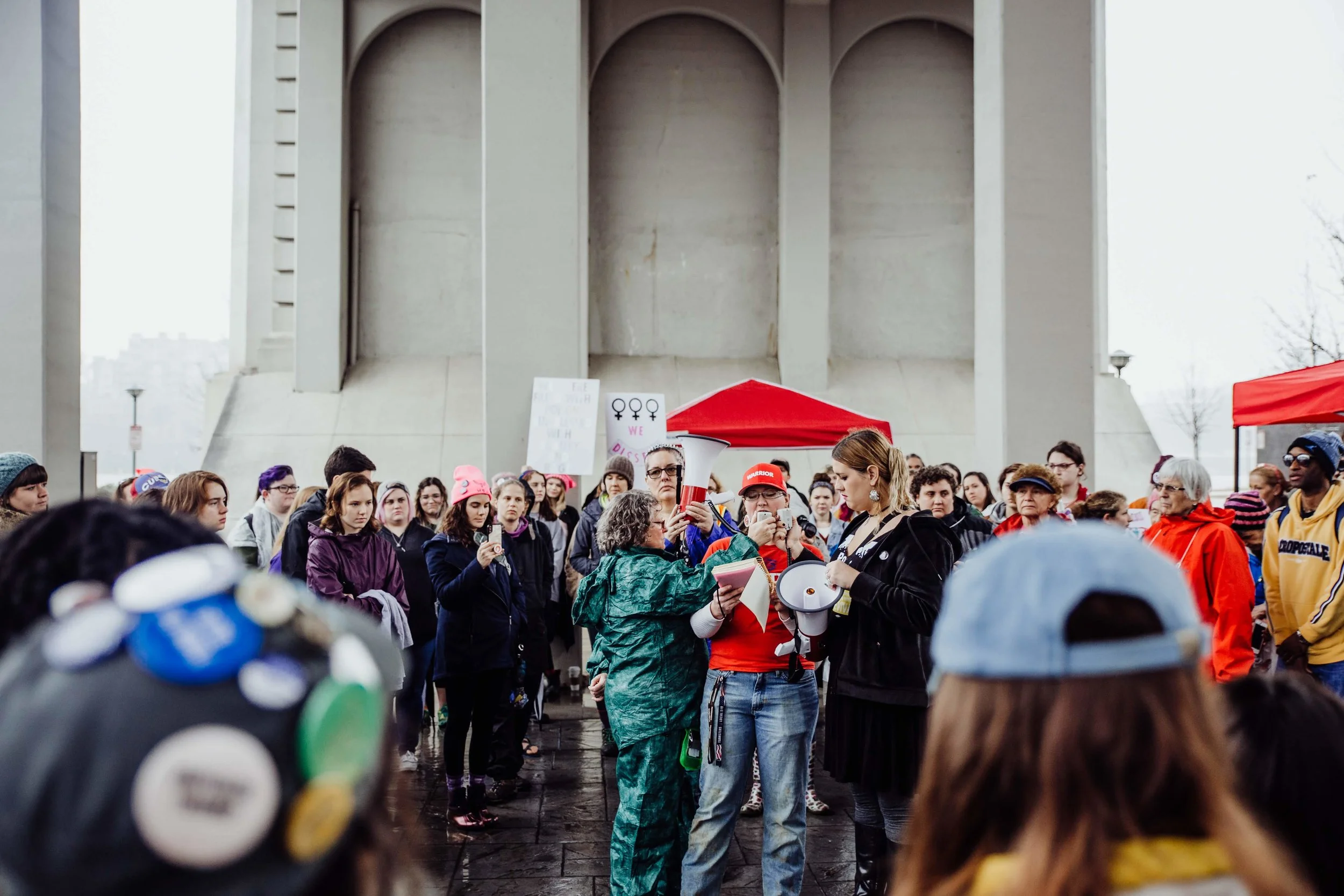Anti-human trafficking marches seek change through global unity
Activists gather in Chattanooga for a women’s march on Jan. 19. According to Dr. Ruth Wienk, marches help unify those advocating against injustices. Photo by Sydney Pressley.
On Saturday, Oct. 19, millions of people gathered together in cities around the world to march against human trafficking and bring awareness to the billion-dollar slave industry.
The scheduled marches were organized by A21, a nonprofit organization aiming to abolish human trafficking and rescue those affected by it.
According to Dr. Ruth Wienk, assistant professor of sociology, marches help unify those advocating against sex trafficking and other injustices.
“Marches in general are a part of social movements, and they're a part of collective action, so they're beneficial for any cause,” Wienk said. “[Those] marching tend to become even more amplified and even more organized and impassioned about that issue because they all of a sudden see the energy of a whole lot of people.”
Wienk further explains collective actions such as these marches are important for social change because of their ability to put added pressure on lawmakers and policymakers.
“It also serves a bridging function in which it brings a lot of awareness to people who might not have already been aware,” Wienk said. “Women wouldn’t even [be able to] vote if the suffragettes didn’t march.”
Chanmony Miller, a senior special education major and president of Cleveland Against Sex Trafficking (CAST), believes marches help bring the issues of human trafficking back to consciousness by clarifying misconceptions.
“I feel like human trafficking is an issue that people are starting more and more to learn about,” Miller said. “But one thing I have found, at least in my own journey as an advocate, is that there are so many misconceptions around the idea of sex trafficking, and so a lot of times these marches are actually able to set some of those myths straight.”
Miller believes the anti-trafficking movement is heading toward the next step of social change.
“We’re a couple of years into the anti-trafficking movement [and] it’s kind of to the point where a lot of people have a vague idea of the issue already,” Miller said. “We’re almost getting into a 2.0 version of the movement where it’s not enough to just raise awareness about the issues.”
Miller believes getting to the root of these issues will be the most effective way to transition into the next phase of the movement.
“It's really trendy to talk about trafficking, especially when we think of movies … [where] some girls [get] kidnapped and we'd go in and rescue her,” Miller said. “It's more trendy to talk about the girl who's been kidnapped or who was lured online than it is to talk about the sixth-grader who's being trafficked by her uncle.”
Miller and Wienk both seek to ask these uncomfortable questions, have these conversations and find educational resources as the best ways to act collectively against human trafficking.
“Marching is great. Finding the active organizations is great and seeing how we can get on board,” Wienk said. “The more that we get on these bandwagons and the more that we collectively act is the way we’re going to invoke change.”
Willowbend Farms, a local nonprofit organization, is also raising awareness about sex trafficking through collective action.
Last weekend, Willowbend Farms hosted “Run For Her Freedom” — a 5k and one-mile walk at Greenway Park.
“This is the second ‘Run for Her Freedom,’ and a lot of things happened because of the race,” said Sarah McKinnis, co-founder and president of Willowbend Farms. “We decided to do it again to keep an ongoing presence and as an awareness tool for the community. The event is for families as a prevention effort of the younger generations.”
For more information about “Run For Her Freedom,” visit Willowbend Farm’s website. To learn more about human trafficking, visit A21’s website.



